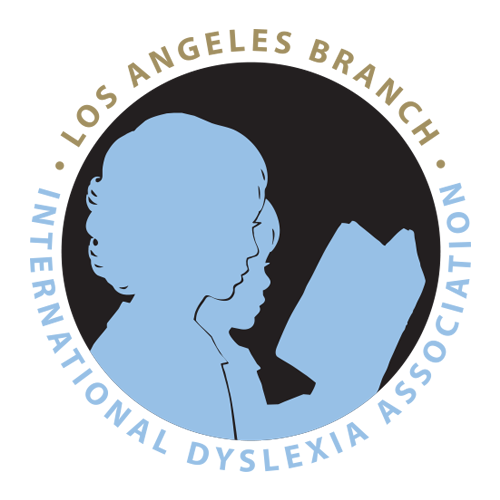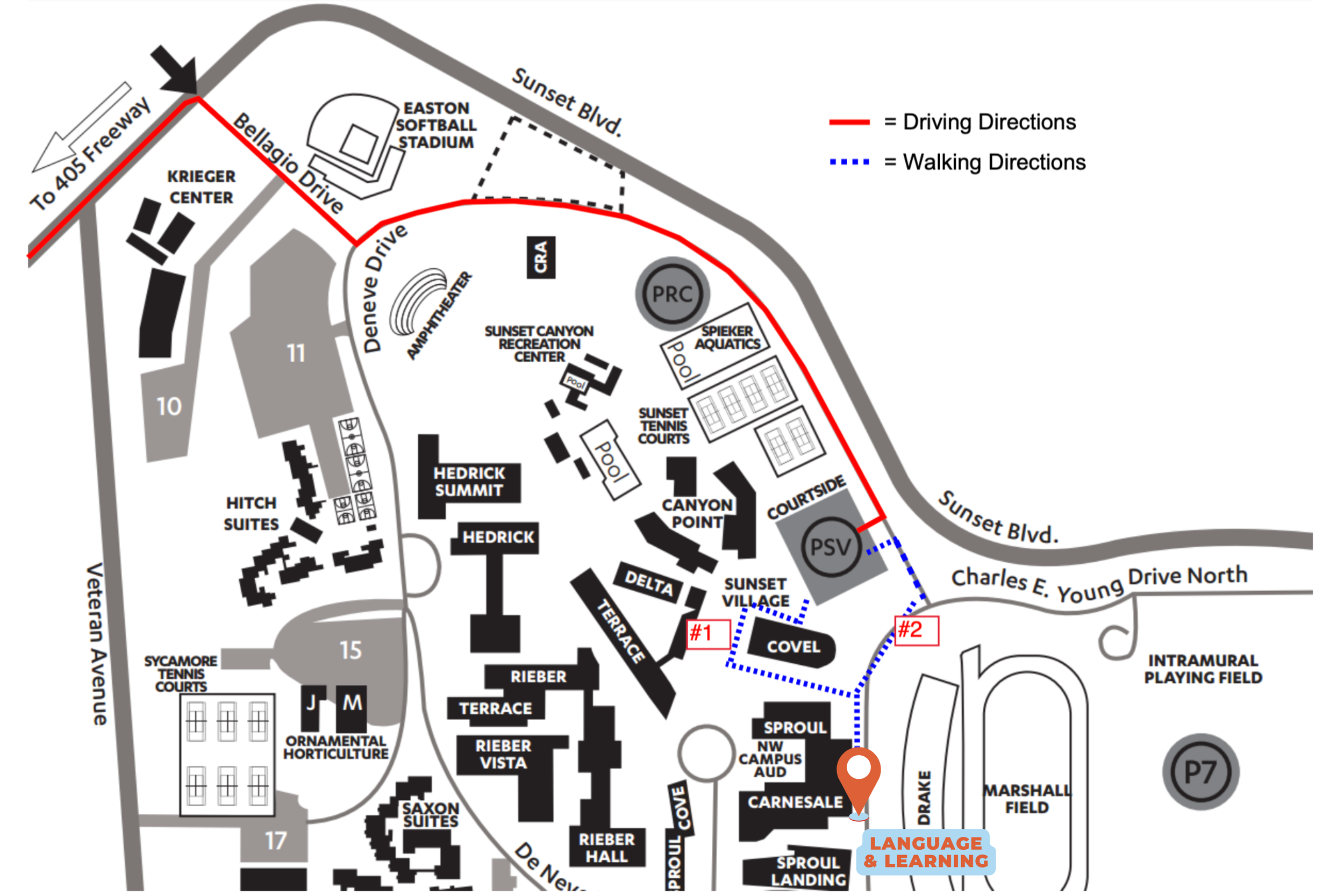Language & Learning Attendee Information
Welcome! Before attending, please take a moment to review these helpful resources:
📍 Campus & Venue Maps
Familiarize yourself with the UCLA campus and Carnesale Commons using our provided maps below. We recommend downloading the UCLA map with written directions and parking instructions to make your arrival seamless.
🚗 Parking & Transportation
Save time by downloading the ParkMobile app in advance for easy parking payment and management.
📅 Preview the Schedule
Plan ahead by reviewing the conference hall map and the day's schedule below to see session details, speakers, and activities.
📖 Recommended Reading List
Access and download the Recommended Reading List below to explore key materials related to the conference.
📷 Consent to Use of Photographic and Video Images
Registration, attendance or participation at the IDALA Conference and its affiliated meetings and events constitute an agreement by the registrant for IDALA and its affiliates to use and distribute (both now and in the future) the registrant or attendee's image or voice in photographs, videos, electronic reproductions, and audio of such events and activities.
📩 Stay in the Loop!
If you haven’t already, please opt in to our mailing list to ensure you receive future conference updates and important information.
💙 Support IDALA
Consider making a donation to IDALA to help fund future conferences and provide scholarships for educators. Your support makes a meaningful impact!
Campus & Venue Maps
Take a minute to familiarize yourself with the UCLA campus map.
Download the map and the ParkMobile app.
Schedule of the Day
Preview the schedule for the day and conference hall map.
Recommended Reading List
Review and download the reading list from our 2026 Speakers.
Recommended Reading List From Our Speakers, 2026:
Adlof, S. M., & Hogan, T. P. (2018). Understanding dyslexia in the context of developmental language disorders. Language, Speech, and Hearing Services in Schools, 49(4), 762–773. https://doi.org/10.1044/2018_LSHSS-DYSLC-18-0049
Adlof, S. M., & Hogan, T. P. (2019). If we don’t look, we won’t see: Measuring language development to inform literacy instruction. Policy Insights from the Behavioral and Brain Sciences, 6(2), 210–217. https://doi.org/10.1177/2372732219839075
Brown, T. E. (2017). Outside the box: A practical guide. American Psychiatric Publishing. California Adolescent Literacy Initiative (CALI) Reads E-Learning Courses. Retrieved February 21, 2026, from https://calireads.org/literacy-modules/
Catts, H. W., & Petscher, Y. (2022). A cumulative risk and resilience model of dyslexia. Journal of Learning Disabilities, 55(3), 171–184. https://doi.org/10.1177/00222194211037062
Hegland, S. S. (2021). Beneath the surface of words: What English spelling reveals and why it matters (First edition paperback). Learning About Spelling.
Henry, M. K. (2010). Unlocking literacy: Effective decoding & spelling instruction (2nd ed.). Paul H. Brookes. IES Practice Guide: Providing Reading Interventions for Students in Grades 4–9. Retrieved February 21, 2026, from https://ies.ed.gov/ncee/wwc/practiceguide/29
Hogan, T. P., Adlof, S. M., & Alonzo, C. N. (2014). On the importance of listening comprehension. International Journal of Speech-Language Pathology, 16(3), 199–207. https://doi.org/10.3109/17549507.2014.904441
Kuiack, A., & Archibald, L. (2019). Developmental language disorder: The childhood condition we need to start talking about. Frontiers for Young Minds, 7, 94. https://doi.org/10.3389/frym.2019.00094
Meldrum, A., & Brand, H. Math facts to memory, Vol 1. Made for Math. https://resources.madeformath.com/product/math-facts-to-memory-volume-1-pdf/
Noël, M.-P., & Karagiannakis, G. (2022). Effective teaching strategies for dyscalculia and learning difficulties in mathematics: Perspectives from cognitive neuroscience. Routledge.
Steere, Amey, et. al. (1984), Solving language difficulties, Cambridge: Educators Publishing Service, Inc. UC/CSU Collaborative for Neuroscience, Diversity, and Learning Language, Literacy, and Dyslexia Modules. Retrieved February 21, 2026, from https://ca-diverse-learning.org/programs/literacy-dyslexia/
Wexler, N. (2025). Beyond the science of reading: Connecting literacy instruction to the science of learning (1st ed). Association for Supervision & Curriculum Development.

